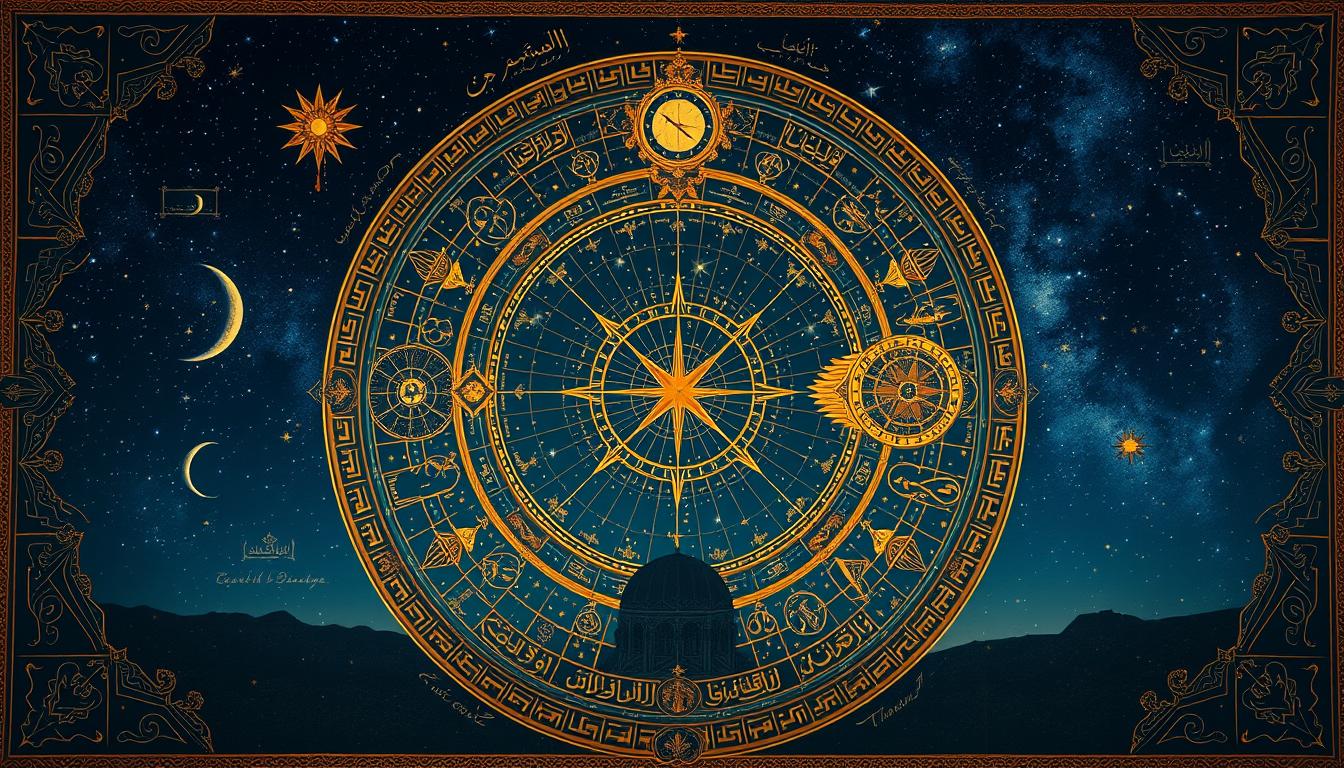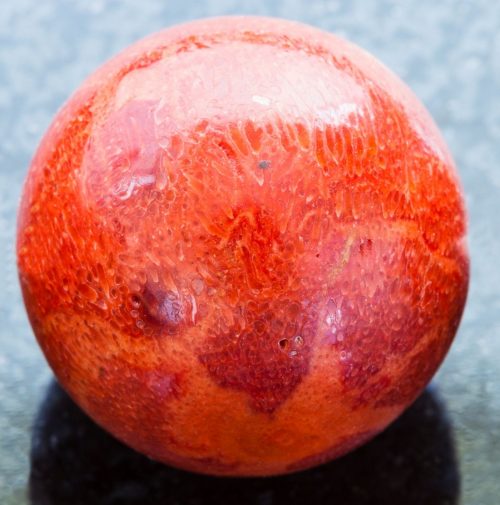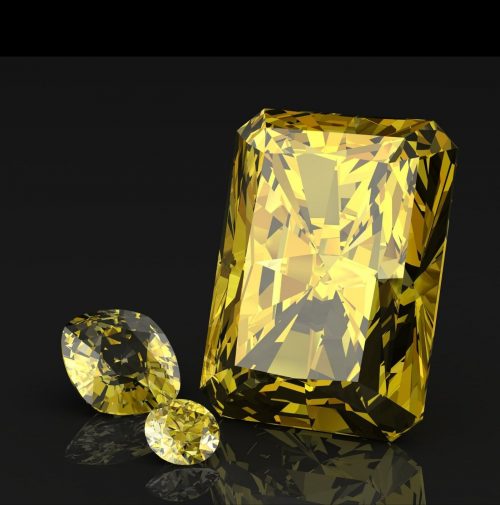Muslim Astrologer at Islamic Golden Age: Stars & Faith

From the 8th to the 14th century, the Muslim world saw a big growth in science and learning. Islamic astrology became a key part of this growth. It mixed celestial knowledge with religious beliefs. Muslim astrologers tried to link their star knowledge with their faith. This led to new ideas that helped both astrology and scientific progress.
This article looks into the world of Muslim astrologers during the Islamic Golden Age. We’ll see how faith and science worked together. We’ll also look at the impact of Greek and Persian astrology. And we’ll see how their work helped advance knowledge.
We’ll focus on famous figures like Abu Ma’shar al-Balkhi, Al-Biruni, and Ibn Yunus. They show us how astrology was important in Islamic society. We’ll also see the debate about its place with Islamic beliefs.
The Rise of Astrology in the Islamic Golden Age
The Islamic Golden Age saw a big increase in astrology study and practice. Muslim scholars took up and added to the astrological traditions of old. They were influenced by ancient Greece and Persia’s rich astrological knowledge.
The Influence of Greek and Persian Astrology
Muslim astrologers looked to ancient Greece and Persia for inspiration. Greek astrology taught them about the zodiac, planets, and horoscopes. They studied and translated works like Ptolemy’s Tetrabiblos.
Persian astrology also shaped Islamic astrology. It focused on the connection between the stars and life on Earth. Muslim astrologers adopted Persian methods, like the solar calendar and interpreting planetary positions.
The Translation Movement and Its Impact on Astrology
The Translation Movement was key to spreading astrological knowledge. It happened in Baghdad’s House of Wisdom. Scholars translated texts from Greek, Persian, and other languages into Arabic.
The House of Wisdom was a center of learning. It drew scholars from fields like astrology, astronomy, math, and medicine.
These translations brought ancient astrological texts to Muslim scholars. This allowed them to learn from and improve upon the old knowledge. It made astrology from different cultures part of Islamic tradition.
Muslim astrologers didn’t just translate texts. They also looked at and improved astrological ideas. They tried to mix astrological knowledge with Islamic beliefs. This led to new ways of understanding the stars and predicting the future.
Prominent Muslim Astrologers and Their Contributions
During the Islamic Golden Age, many brilliant Muslim astrologers made a big impact. They created groundbreaking works that changed astrology in the Islamic world and beyond. These scholars were not just great at astrology. They also made big contributions to astronomy, mathematics, and other sciences.
Abu Ma’shar al-Balkhi: The Great Persian Astrologer
Abu Ma’shar al-Balkhi, known as the “Great Persian Astrologer,” was very influential. His books, like The Greater Introduction to Astrology and The Flowers of Abu Ma’shar, changed astrology for centuries. He mixed Greco-Roman, Persian, and Indian astrology to create a complete system.
Al-Biruni: A Multifaceted Scholar and Astrologer
Al-Biruni was a genius in many areas, including astrology, astronomy, and mathematics. His books, such as The Book of Instruction in the Elements of the Art of Astrology and The Mas’udi Canon, showed his deep knowledge of astronomy and its use in astrology. Al-Biruni’s work made astrological predictions more accurate and helped us understand how the stars affect us.
Ibn Yunus: The Innovator of Astronomical Tables
Ibn Yunus, an Egyptian astrologer and astronomer, is famous for his Hakemite Tables. These tables were very accurate and changed astrology and astronomy. His work made astrological predictions more precise. He also improved how we calculate solar and lunar eclipses, which helped astrologers a lot.
The work of these Muslim astrologers did more than just advance astrology. It also helped us understand science better. Their books and tables helped shape astrology for many years to come.
The Relationship Between Astrology and Islam
The link between astrology and Islam during the Islamic Golden Age was complex. Scholars and astrologers had different views. Some saw astrology as fitting with Islamic beliefs. Others saw it as a form of divination that clashed with Islam.
Supporters of astrology in Islam saw the stars as signs of Allah’s creation and power. They believed studying the stars could offer deep insights into the world and human life. They aimed to blend astrological ideas with Islamic teachings, highlighting Allah’s control over the stars.
However, critics of astrology pointed out its focus on predestination, which they saw as undermining free will. They believed giving power to stars instead of Allah was polytheistic. This view was against Islam’s strict monotheism.
The debate on astrology and Islam was fueled by varied views from scholars, philosophers, and astrologers.
Despite the debate, astrology was a big part of Islamic life during the Golden Age. Many scholars and leaders practiced it or sought astrologers’ advice. This debate enriched the era’s intellectual and cultural scene, shaping how people saw and used astrology.
Muslim Astrologer at Islamic Golden Age: Stars & Faith
In the Islamic Golden Age, astrology was a big part of life. It helped in making big decisions and guided personal choices. Astrology was more than just a science; it was a part of everyday life in the Islamic world.
The Role of Astrology in Islamic Society
Astrology was a big deal in Islamic society back then. It was not just for scholars but for everyone. People used astrology for many things, like:
- Predicting the outcomes of political events and military campaigns
- Determining auspicious times for important ceremonies and rituals
- Providing guidance on personal matters such as marriage, career, and health
- Interpreting celestial events and their potential impact on earthly affairs
Court astrologers were very important in Islamic society. They were respected and wanted by rulers for their star-reading skills. They helped with big decisions and personal matters. This shows how astrology was key in making choices at high levels.
The Debate on the Compatibility of Astrology and Islamic Beliefs
Even though astrology was popular, there was a big debate about it and Islam. Some thought astrology was okay with Islam, while others saw it as against Islamic beliefs.
Supporters of astrology, like Abu Ma’shar al-Balkhi, said the stars were made by God. They believed studying them could help understand God’s plan. They thought astrology could guide people without hurting their faith.
But, some Islamic scholars didn’t agree. They said astrology gave too much power to the stars. They thought it took away from God’s power and made people think the stars controlled their lives. This goes against Islamic teachings on free will and responsibility.
“Astrology is a science in itself and a complete study, because it teaches of the states of the spheres and the stars as they are in themselves and in their relation to generation in the world.”
– Abu Ma’shar al-Balkhi
The debate on astrology and Islam kept going during the Golden Age. Scholars and astrologers wrote a lot to share their views. This shows how astrology and Islam tried to find common ground, balancing science with faith.
Conclusion
The Islamic Golden Age was a time of great progress in many areas, including astrology. Muslim astrologers were key in keeping, growing, and mixing astrological knowledge from ancient Greece, Persian, and India. They worked hard in translating texts, making observations, and coming up with new ideas. This helped a lot with the scientific progress of their time.
The impact of Muslim astrologers goes beyond their work in astrology. They tried to understand how the stars affect us and fit it with Islamic faith. They worked hard to find a balance between the stars and God’s will. This helped create a deeper understanding of the universe and its link to religious beliefs during the Islamic Golden Age.
Today, the work of famous Muslim astrologers like Abu Ma’shar al-Balkhi, Al-Biruni, and Ibn Yunus still inspires many. Their work shows the deep knowledge and interest in astrology and faith in the Islamic world. Looking back, we see how these astrologers greatly helped knowledge grow and shaped science in the medieval Islamic world.
FAQ
What was the Islamic Golden Age, and how did it influence the development of astrology?
Who were some of the most prominent Muslim astrologers during the Islamic Golden Age?
How did Muslim astrologers reconcile their celestial knowledge with their Islamic faith?
What role did astrology play in Islamic society during the Golden Age?
What is the legacy of Muslim astrologers from the Islamic Golden Age?
Keywords: Muslim astrologer, Islamic Golden Age astrology, stars and faith in Islam, astrology in Islamic Golden Age, Islamic scholars of astrology, Muslim astronomers and astrologers, Islamic views on stars, faith and celestial bodies, astrology and religion in Islam, Islamic contributions to astrology.








Connect me